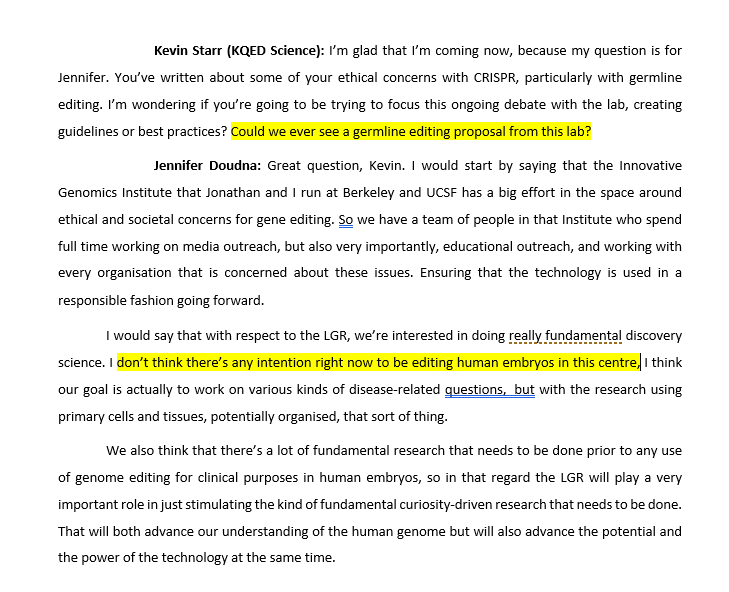GSK forms CRISPR alliance with UC Berkeley and UCSF to create functional genomics insitute. Coupla of points ought to be added (thread).
statnews.com/2019/06/13/gsk…
statnews.com/2019/06/13/gsk…
The main one, technologywise, is this about using CRISPR as a gene function screen. I can't explain it, but in short, you can do a gazillion experiments at once, fleshing out connections, sketching the biology, finding drug targets. ucsf.edu/news/2018/07/4…
The other is a policy issue. GSK is paying $67 million for a squad of UC scientists whose activities, via a board, they help DIRECT. Plus GSK has exclusive right of refusal on all the IP, both drug targets and tech. Gotta wonder why public employees working for this drug company
People don't seem to recall or much care a very similar deal in 1999, between Novartis and UC Berkeley, caused an absolute sh*tstorm, and headlines like "The Kept University." in fact, no one even seemed to be aware of this history berkeley.edu/news/media/rel…
Times change? Academia changes? Technology changes? Per Jonathan Weissman, of UCSF, this industry funded activity is good because academics aren't position to scale up this screening tech, and putting it in a startup kind of walls it off.
The problem of being deeply involved with industry though is that it creates a conflict of interest. What is the CRISPR tech we're going to get? Already, decisions of all sorts are fundamentally colored by the financial interests of the parties developing it.
During a conference call with journalists, Hal Barron, CSO of GSK, repeatedly called CRISPR "ENORMOUSLY POWERFUL." Yes, and with enormous power comes enormous responsibility. Want to think about whether CRISPR activities in academia, already highly commercial, should be more so
Lastly, a reporter asked Jennifer Doudna if this outfit would edit embryos. "THERE IS NO INTENTION RIGHT NOW TO BE EDITING EMBRYOS IN THIS CENTER," she said. more cells and organoids. But I was surprised this needed a qualification of 'right now.' maybe later? door open? /end
PPS. per UC berkeley, GSK does not have a right of refusal. They have an option to license exclusively. these are different in that the former lets you spoil a deal you didnt take at first.
• • •
Missing some Tweet in this thread? You can try to
force a refresh














